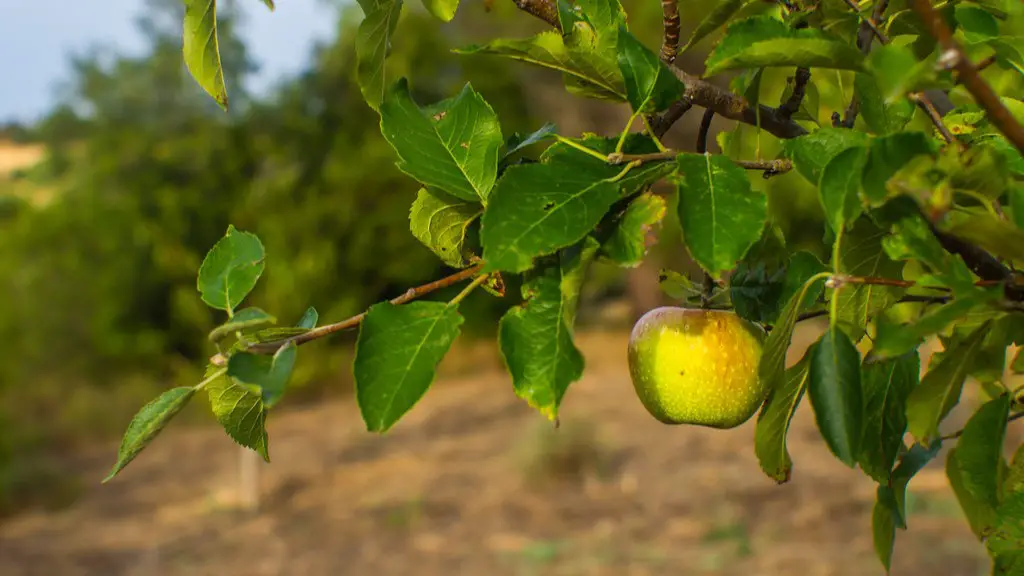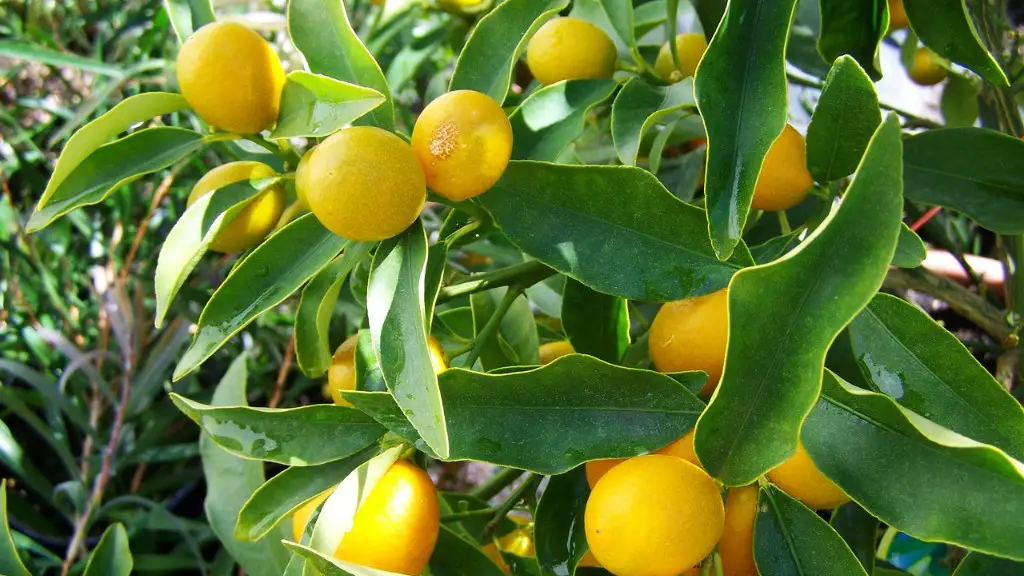Soil Types
One of the most important considerations for planting an avocado tree is determining the correct soil type. Avocado trees thrive in well-draining, nutrient-rich soil. Ideally, the soil for an avocado tree should have a pH level between 6.0 and 6.5. Sandy loams with organic material are ideal for planting an avocado tree. The amount of clay in the soil can determine how much water and nutrition the tree will get, so a well-balanced soil composition is preferred. To test the quality of the soil, a basic soil test kit can be used to determine the pH level, as well as the presence of macro and micro nutrients.
Organic Matter
Organic matter is essential for healthy soil. Adding compost or other organic matter to the soil helps the soil to retain its nutrients and moisture. Compost also helps create a porous environment that is beneficial to the roots of the tree. It is important to apply organic fertilizer to the soil every three months, especially when the tree is producing fruit. Organic matter also helps make the soil more acidic, which is ideal for an avocado tree. When adding organic matter to the soil, it is important to remember to not over-do it.
Moisture Removal
Avocado trees need deep watering and their roots must be kept moist. Too much water can lead to root rot, and not enough water can lead to dry fruit, so the water must be managed regularly. An important step in the planting process involves adequately draining the soil so that excess moisture can drain away from the roots. Adding gravel and other drainage materials, or digging a trench around the base of the tree, can improve drainage and allow the water to percolate through the soil and away from the roots.
Nutrient Support
Nutrients are also important for an avocado tree. Added fertilizer can help provide the nutrients that a tree needs to grow. Fertilizer can be added to the soil in the form of compost or liquid fertilizer. Compost is a great source of nitrogen, and can help the tree grow quickly and produce more fruit. Liquid fertilizers are also beneficial, as they provide essential minerals like magnesium, iron, and phosphorus in forms that are easy for the tree to absorb.
Disease Prevention
When planting an avocado tree, it is important to consider potential diseases and pests that can affect the tree. Pests such as scale and aphids can be controlled by using natural foliar or soil applications of neem oil. If disease-causing fungi become an issue, it is important to treat the tree with a fungicide. Fungicides can be used to control a wide range of diseases, including citrus black spot and root rot. With proper soil and pest management, an avocado tree will be able to thrive for many years.
Sunlight and Temperature
Avocado trees need lots of sunshine and warmth to grow and produce healthy fruit. The tree should be planted in an area that gets at least six hours of direct sunlight each day. The ideal temperature for an avocado tree is between 75°F and 85°F. Temperatures that are too hot can lead to leaf burn, and temperatures that are too cold can cause the tree to suffer from nutrient deficiencies.
Fertilizing and Pruning
Fertilizing an avocado tree can be done by using organic materials such as compost or manure. Organic fertilizer should be applied once a year to supply the tree with the necessary nutrients. Pruning an avocado tree should also be done regularly, as it helps to keep the tree healthy and vigorous. Pruning can help to remove dead or weakened branches, and it also helps to promote new growth and create a compact, dense canopy.
Conclusion
Planting an avocado tree in the correct soil type is essential for the growth and health of the tree. Good quality soil provides the nutrients necessary to promote healthy growth. Soil should be loamy, well-drained, and enriched with organic material. The pH level should also be tested before adding the tree to the soil, as this helps to ensure that the tree gets the nutrients it needs. Proper sunlight, temperature, and pruning are also essential for an avocado tree to grow and produce healthy fruit.
Soil Preparation
Prior to planting an avocado tree, the soil should be well prepared. The desired soil quality is a loamy, well-draining soil that is rich in organic material. The pH level should be tested and adjusted as needed. Additionally, drainage materials such as gravel should be added to help ensure that excess moisture can percolate away from the tree’s roots.
Amending Soil
Using amendments such as compost or other organic materials can help make the soil nutrient rich and improve the drainage. Compost helps to increase the acidity of the soil and can provide the necessary nutrients for the tree to flourish. Adding liquid fertilizer can also be beneficial, as it provides essential minerals such as phosphorous in forms that can be easily absorbed by the tree.
Identification of Disease
Avocado trees can be susceptible to disease and pests, so it is important to take steps to prevent and treat any diseases. The use of neem oil spray can be used to control pests like aphids and scale, and a fungicide can help to control fungal diseases. Monitoring the tree for signs of disease is essential, as early identification can make it easier to prevent the spread of the disease.
Water Management
Another important factor in the planting and care of an avocado tree is managing the water. Too much water can lead to root rot, while not enough water can lead to dry fruit. Proper drainage should be ensured before planting the tree, and regular watering is necessary to keep the tree healthy. A good rule of thumb is to water the tree deeply twice a week, allowing the water to soak deep into the soil.

